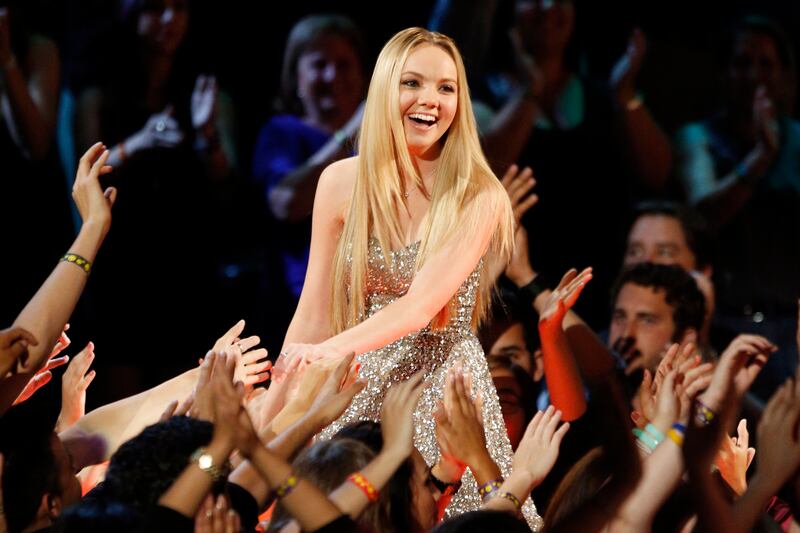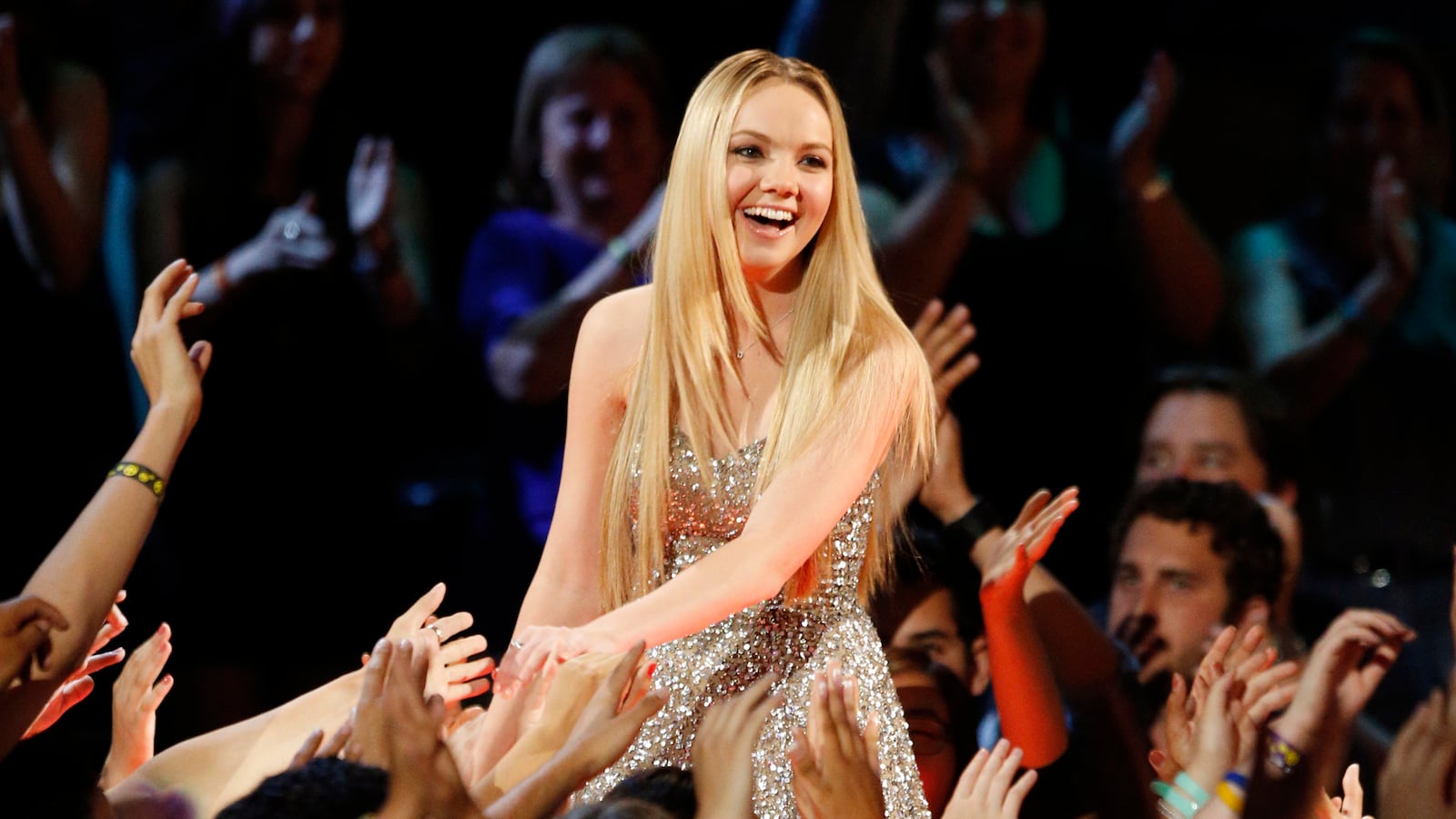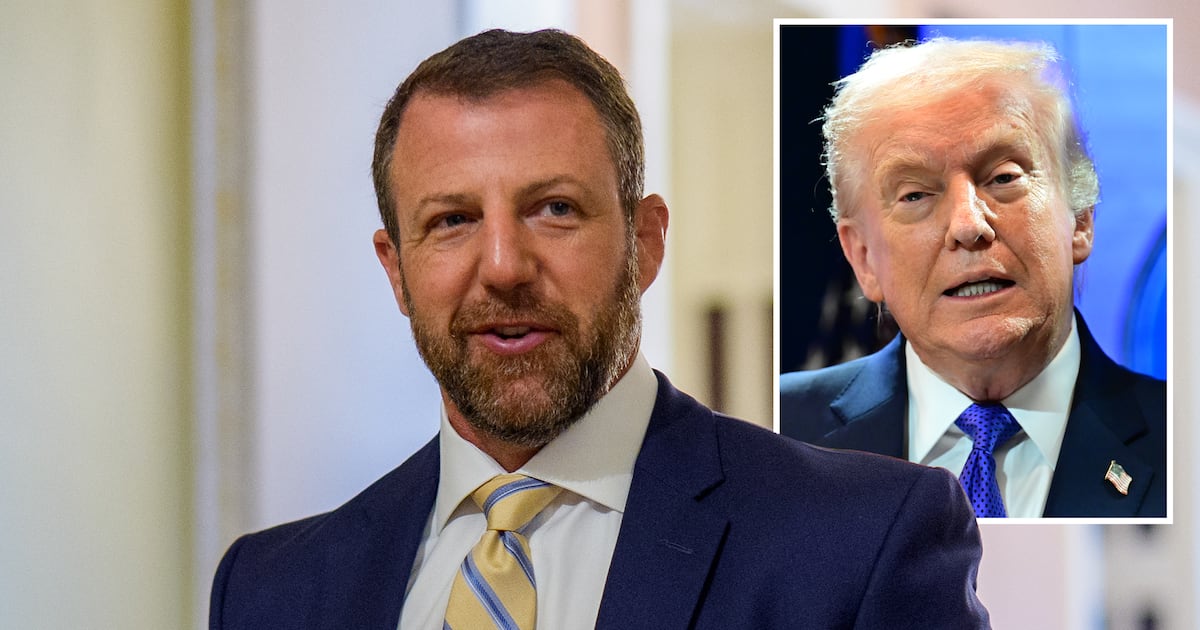The Voice is a hit. There are no ifs, ands, or buts about that. It’s almost singlehandedly carrying NBC with its strong ratings and water-cooler presence. It’s the first of the endless stream of American Idol copycats to finally compete with the reality-TV juggernaut in terms of popularity and relevance, even outdrawing the longtime Goliath in ratings some weeks. But at least in one crucial measure, The Voice is not a success.

Like American Idol, The Voice is a talent competition. Its mission is to find the next great recording artist, just as Idol discovered Kelly Clarkson, Carrie Underwood, Jennifer Hudson, Katharine McPhee, Kellie Pickler, Daughtry, Clay Aiken, Adam Lambert, Scotty McCreery, and, as recently as last year, Phillip Phillips. Now about to crown its fourth winner, The Voice has discovered ... exactly no one. That is, not one contestant from the show—winner or otherwise (and who even remembers the names of the three past winners?)—has made so much as a blip in the record industry. A talent competition can only be taken seriously for so long when it’s not producing successful talent.
“It’s like people win The X Factor or The Voice and enter the Witness Relocation Program,” Dave Holmes, television host and reality-TV recapper, tells The Daily Beast. “I watched every episode of those shows, and I can’t off the top of my head even name the winner.”
On Tuesday night Carson Daly announced that 16-year-old country singer Danielle Bradbery (from Team Blake, for those keeping track) is the Season 4 winner of the series. Can she finally be the star The Voice needs?
To be fair, topping the show’s past winners won’t exactly be hard. Javier Colon, The Voice’s inaugural victor, received $100,000 and a recording contract with Universal Republic Records in 2011. His debut album, Come Through You, peaked at an embarrassing No. 134 on the charts. While on The Voice, he had five recordings of his performances rank in the top 100. The two singles he released off his debut album, “As Long as We Got Love” and “A Drop in the Ocean,” both did not even chart. A year after winning The Voice, he severed ties with Universal.
The following year’s winner was Jermaine Paul, a melisma-loving R&B crooner much in the same mold as Colon. He premiered his first single, “I Believe in This Life,” on a November 2012 episode of The Voice. It never charted, never got any radio play, and his debut album, Finally, still has no release date.
As for Season 3 winner Cassadee Pope, her first single, “Wasting All These Tears,” just dropped on June 4. When compared with the embarrassing performances of songs by Paul and Colon, she’s had roaring success. When compared with the rest of the industry’s artists—and even to Idol’s star alums—the success can really only be called a whimper. “Wasting All These Tears” debuted at No. 37 on the Billboard Hot 100, but is described as “a song that cross-pollinates an Avril Lavigne chorus with with Vanessa Carlton verses” and “an impossibly minor song.”
Which brings us to little Bradbery.
The rootin’ tootin’ Martina McBride in a pint-size body “deserves it—in the way that any artist so obviously instilled with natural talent deserves their successes,” wrote Glen Gamboa at Newsday. “You’re one of the most important people to walk across this stage,” said Blake Shelton, her coach, after her Monday night performances. That’s all fine, and probably true. It also means absolutely nothing if the precocious 16-year-old, who never sang in public before her audition, can’t get a single on the radio.
Even those who recognize Bradbery’s talent aren’t sold on her marketability. As a talent, “Danielle shouldn’t be dismissed—girl can sing,” writes Adam Carlson at Entertainment Weekly. “But she shouldn’t win, either—girl can only sing. Her performance style is generously described as repetitive and less generously described as nonexistent.” In order to be the next great recording star, you need to be just that, a star. A milquetoast mannequin with a pretty voice can only go so far—just ask the graveyard of personality-drained reality-competition winners with no careers.
There are those who see dollar signs in Bradbery’s future. “The audience loves a child prodigy, and the likes of Underwood and [former Nashville Star contestant] Miranda Lambert have shown that country audiences will vote with dollars for a singing-show winner,” says James Poniewozik at Time.
Still, she might not be the right winner for The Voice.
Remember, American Idol was ridiculed when five singers in a row—“white guys with guitars”—won the competition. Sure, two of them found, at the very least, moderate success (Scotty McCreery and Phillip Phillips). But the predictability became one of the show’s most potent poisons. The Voice already had two winners in a row who were, by and large, interchangeable with Colon and Paul. Now, Bradbery could essentially be confused for Pope’s younger sister. As Idol quickly learned, churning out more of the same yields more of the same: consumer indifference.
Someone as refreshingly unique and unusual as second-place finisher—the Jewish, lesbian, banshee-voiced, wind-up box of endearing quirk Michelle Chamuel—would have been a much more invigorating choice for the show, and a winner who might have been able to put the series on the industry map.
As TV Line’s Michael Slezak wrote following Monday night's performances, on which the votes for the winner were cast, Bradbery “allows Blake and his country fans to have it their way—midtempo, twangy love songs made with a quarter pound of lean beef and cooked and the same exact way every time.” Compare that to the spot-on metaphor he applied to Chamuel (who, as opposed to Bradbery's endless litany of country ballads, diversified herself with performances ranging from Robyn to Bruno Mars to U2 to Taylor Swift to Annie Lennox during the competition): "All Chilean sea bass with avocado foam, wasabi mashed potatoes and haricot vert with a soy demi-glaze ... a rarity, an acquired, a special (and expensive) night out.”
With the endless buffet of reality-TV singing competitions vying for viewers’ appetites, The Voice could have used a signature dish like the one Chamuel was serving.
For all the talk of American Idol dying of old age and irrelevance and young, spunky hit The Voice serving as, perhaps, the reason to pull the plug, it’s worth comparing the ratings of the performance episodes of two shows’ respective finales. The performance night faceoff between Candice Glover and Kree Harrison on Idol earned a 2.9 rating among viewers 18 to 49 years old, the demographic most coveted by advertisers. Monday night’s three-way showdown between the Swon Brothers, Bradbery, and Chamuel earned a 3.5 rating in the same demo (down 15 percent from last year). As Vulture’s Joe Adalian aptly put it in a tweet Tuesday morning, “The difference between ‘dead’ and ‘red-hot juggernaut’ apparently is 0.6.”
But maybe it’s not fair to put the future of The Voice on Bradbery’s shoulders. The show may be just as fine as is ... which right now is an entertainment television show far more than it is a player in the music industry.
“People have a short memory span,” Emily Yoshida, pop-culture editor at Grantland, tells The Daily Beast. “As long as The Voice entertains while the season lasts, it will be OK. It has a couple more years where it can get by on just being a good show, especially since it doesn’t do the bombast that Idol and The X Factor does.”
Slezak agrees. “You don’t feel like you’re going to see the biggest music star in the world come off the show, but it’s fun to watch,” he tells The Daily Beast. Plus, how quickly we forget the true story of Idol’s rise. “It took Kelly Clarkson a while to dominate the airwaves. It was her second album that took off.”
So while the media narrative at this moment ridicules Idol and hails The Voice, the media is fickle, and the conversation can switch directions at any moment and will. Forget about what judges are in the silly spinning chairs or how many people are watching each week. To earn the credibility that will give the show that kind of longevity—not just ratings-wise, but in relevance, too—that Idol has, it needs an alum to sing a hit record. A massive record. A “Since U Been Gone”-, “Before He Cheats”-, “Home”-size record.
While perhaps unfair to prejudge Bradbery’s career potential while she’s still picking the confetti out of her hair, it seems unlikely that she’ll be the Voice alum to produce that caliber of song.






